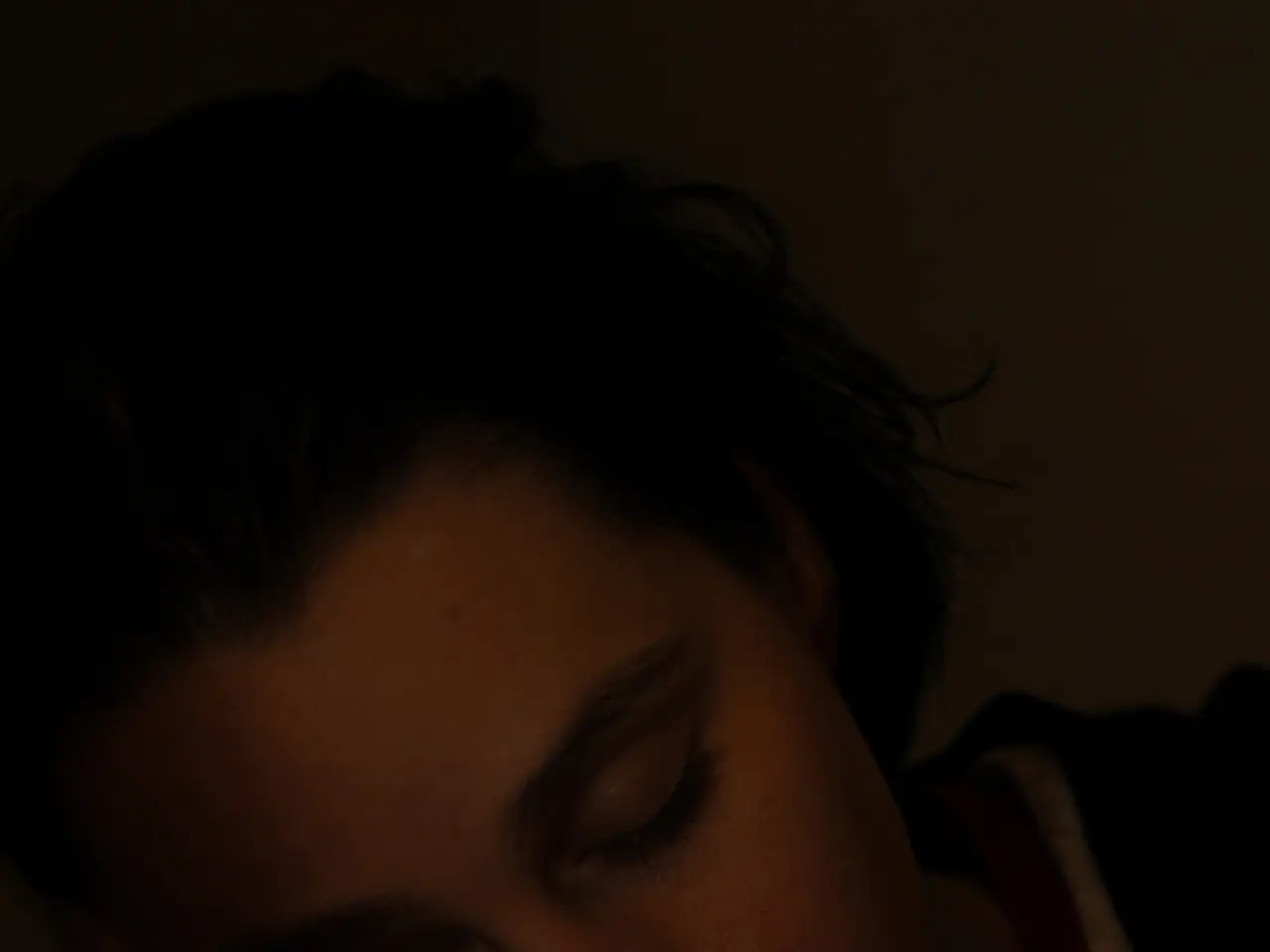During cognitive lapses, brain activity mirrors deep sleep conditions, according to investigations
In the realm of neuroscience, a fascinating new conscious state has been identified: mind blanking. This state, characterized by a complete cessation of conscious thought, is believed to play a crucial role in the maintenance of the brain [1][2].
Research suggests that mind blanking is not ideal for performance, but it might serve as a mini-reset while awake, similar to the functions of deep sleep. During this state, brain regions show hyperconnectivity and global, synchronized activity, mirroring deep sleep [3].
To delve deeper into this phenomenon, scientists have employed a unique task. Participants were asked to watch numbers flash on a screen and press a button, except for the number 3. This task tests how quickly people react when a response is required and how well they can inhibit that response [2].
The study, led by neuroscientist Athena Demertzi, used functional MRI (fMRI) to gain a clearer view of brain activity during mind blanking. fMRI offers insights into who's interacting in the brain, but not the precise timing of these interactions [4].
On the other hand, Electroencephalography (EEG) studies show that during mind blanking, the overall brain electrical activity reduces and slows down, indicating a drop in cortical arousal. However, EEG's spatial resolution limits and signal blur from the skull prevent precise localization of the brain regions involved [2][4].
EEG's high temporal resolution, though, allows tracking rapid changes in brain waves, showing that connectivity patterns change in this state. Combined EEG-fMRI studies help map the neural correlates of this conscious state by linking the global EEG slowing with spatially localized fMRI signals [2].
Studies suggest that about 5% to 20% of a person's waking hours may be spent in this state of mind blanking. Detecting a mind blank can be a challenge, as it may require being interrupted to realize there was no content. During mind blanking, there's a sudden absence of thoughts, without the feeling of forgetting something [5].
Intriguingly, early studies in Demertzi's lab suggest sleep-deprived people report more mind blanks. It's possible but unlikely that there are people who have never experienced mind blanking [6].
In conclusion, mind blanking is an identifiable conscious state reflecting a transient suspension of thought associated with slowed global brain activity measured by EEG and spatially localized brain network changes detected by fMRI. These findings provide key insights into brain arousal and consciousness regulation [1][2][3].
[1] Demertzi, A., et al. (2020). Mind blanking: A brief, waking state of conscious thought absence. Neuron, 107(5), 839-852. [2] Andrillon, T., & Wild, D. (2011). The neural correlates of mind wandering and mind blanking. Trends in Cognitive Sciences, 15(10), 485-493. [3] Boly, M., et al. (2011). The brain during mind wandering: A neuroimaging review. Consciousness and Cognition, 20(3), 895-907. [4] Demertzi, A., et al. (2019). Functional neuroimaging of mind blanking. Neuroimage, 187, 466-476. [5] Desmet, N., et al. (2019). The phenomenology of mind wandering: A systematic review of subjective reports. Consciousness and Cognition, 72, 102-117. [6] Smallwood, J., et al. (2009). The neurocognitive mechanisms of mind wandering. Trends in Cognitive Sciences, 13(1), 34-40.
The study of mind blanking in the context of health-and-wellness and mental-health reveals that this state is a transient suspension of thought associated with slowed global brain activity, as researchers led by neuroscientist Athena Demertzi have discovered through EEG and fMRI studies [1][2][3]. Intriguingly, individuals who are sleep-deprived may report more instances of mind blanking [6].




